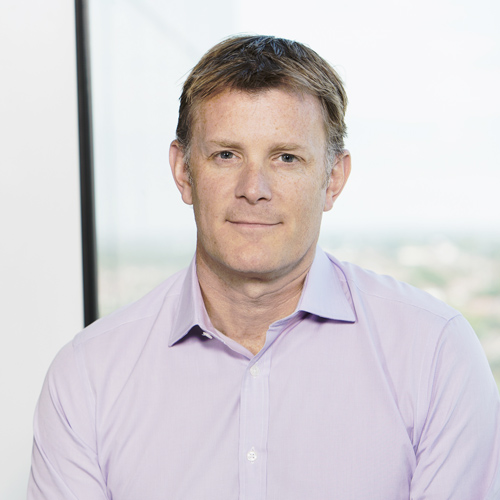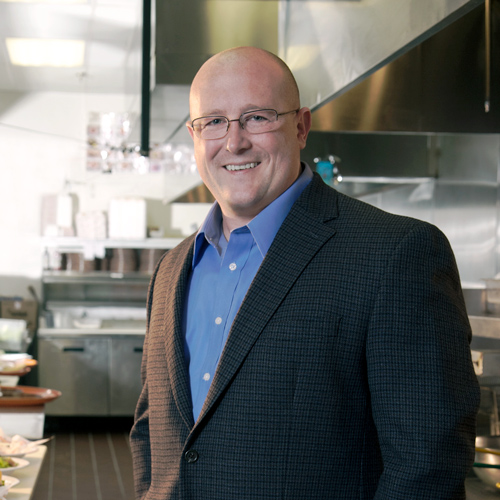Friends often ask Tony Kaufman what it’s like to work for FIS, the Jacksonville, Florida-based financial services technology company. Kaufman, who joined the company in 2003 as vice president, real estate, and facility operations, always says it’s like being an American.
That’s because the real estate portfolio at FIS is a diverse mix, with the company—including Kaufman—in the mergers and acquisitions process early and often. Kaufman says he’s been involved with 25 acquisitions during his tenure: “As the financial industry was consolidating, vendors had to do the same.”
For example, FIS acquired mFoundry, a provider of mobile banking and payment solutions for financial institutions and retailers, in March 2013. The following year, it acquired Reliance Financial Corporation in July and Brussels-based Clear2Pay, a provider of corporate payment solutions, in October.
Today, FIS has 237 properties globally, totaling about 7 million square feet of space for roughly 55,000 employees. Given the history and growth focus of FIS, those numbers should continue to expand, and Kaufman will be there to help.
“My responsibility as part of any acquisition is on the due diligence,” he says. “The good news is real estate in the company has a seat at the table during acquisitions. That’s where we get a lot of our synergies from.”
Kaufman says he enjoys working at such a rapidly expanding company, although growth will always bring its assortment of challenges.
“It’s hard to manage a portfolio when it’s constantly changing,” he says. “If you have a focus on growing organically, it’s easier to predict how you’ll grow. You can wrap the right leases around certain facilities. With a more acquisitions-oriented approach, you think you have everything figured out and then the landscape of the company changes.”
That challenge bleeds over into Kaufman’s other main role: facilities management. Once the company absorbs a new acquisition and its real estate, his job is making sure the new properties fit within the corporate structure and run smoothly. As it is with the FIS workforce, each property is different.
For instance, Kaufman says that when FIS acquired mFoundry, it also got its sleek and modern office, which is typical of a San Francisco-based tech company.
“We’re competing against the Apples and Googles of the world there,” he says. “To be able to attract and retain that kind of talent, you have to look and smell and taste like everyone else. We have real estate like that because we need to have it.”
The new office in Collegeville, Pennsylvania, where FIS houses more tech workers, is modern yet different in how it matches East Coast tech culture. Its call center spaces are also distinct from the offices of its retail wealth management services. A field-sales office is different from the New York-based trading services office, and so forth.
“I can’t just cookie-cutter everything,” Kaufman says. “If I could, it would make decision-making easier and faster—and I’d have a better leveraged spend by buying the same things over and over again. But that doesn’t work. We’re very entrepreneurial, and don’t get hung up on that.”
As Kaufman explains, he is more interested in the tectonic shift in the makeup of US offices everywhere. According to the Pew Research Center, millennials replaced Generation X in the first quarter of 2015 as the largest demographic in the US workforce. That hit home for Kaufman when a hiring manager recently insisted on new office space.
“We have some older facilities that have high-wall workstations and not many collaborative areas,” he says. “He was about to hire a millennial and pointed out the workstations and the prospect asked, ‘You’re not going to put me in that cell, are you?’”
Kaufman, however, can’t simply tailor FIS offices for millennials alone. The company still has a significant number of baby boomer and Gen-X employees. Kaufman says those generations tend to prefer quiet and privacy to get their work done.
“When you think of millennials, you think collaborative and social,” Kaufman says. “I need to convert our portfolio to handle this new generation without alienating the other generations.”
But redoing all the offices at once doesn’t make fiscal sense, either.
“It will cost millions to convert our offices, and there’s no hard ROI that I can attach to that,” Kaufman says.
So he’s doing what he calls “opportunistic” changes. Moving to a new office in Collegeville, Pennsylvania—to cite one example—was an opportunity to introduce smaller, low-wall workstations that leave room for common spaces where millennials (or anyone for that matter) can collaborate.
Kaufman says the smaller workstations helped the company use roughly 25–30 percent less square feet—savings that funded the transition. To this day, he continues to look for more of these opportunities.
“We’re going to have a diversity of workspaces to match the diverse workforce we have,” he says. “We lose uniformity by not chaining ourselves to an old style of thinking, but the world is changing, and you have to change with it.”
It’s the American way.
The Good Kind of Paperwork
Ideally, Tony Kaufman would visit each of FIS’s facilities before the company begins work on them, but that’s not always possible.
When FIS acquired SunGuard in 2015, the financial software and technology services company had 125 facilities across the country. As a result, most of the prepping was done on paper.
“My biggest hurdle, typically, is getting good data,” Kaufman says. “We make so many decisions based on data without actually seeing properties firsthand. It’s critical.”
Luckily, SunGuard’s representatives gave him a comprehensive amount of information, which is not always the case.


